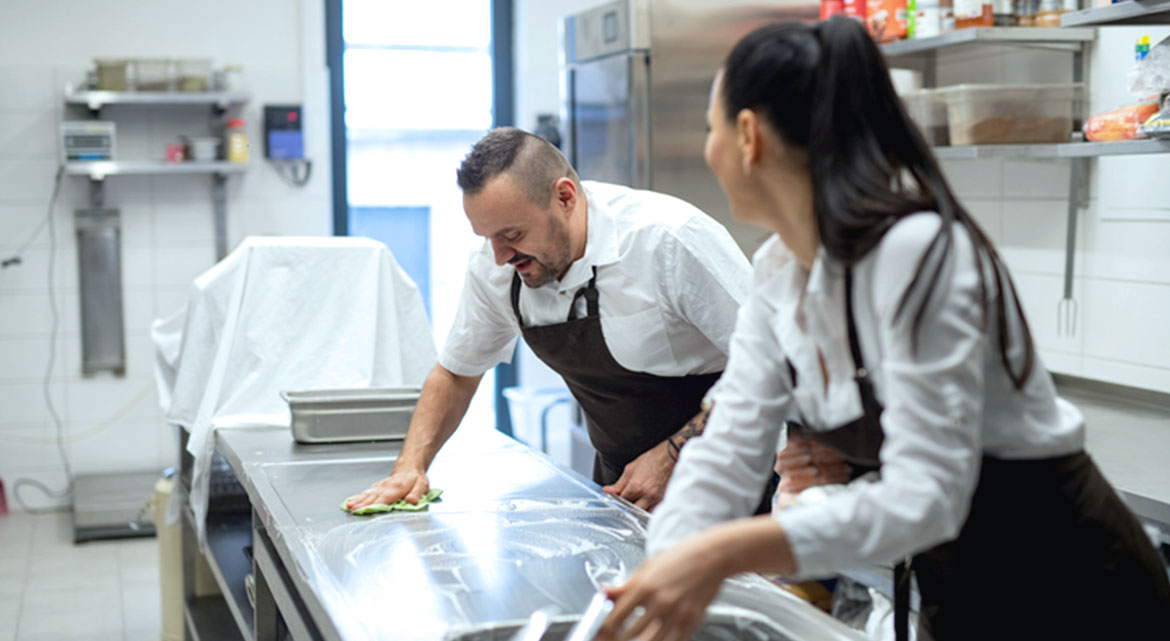How the Cooperative Food Movement Is Evolving
Cooperatives are having condition and developing in all parts of the foods process. And yet, their founders are swimming upstream in an surroundings formed by hierarchical business products. For this explanation, understanding how to run a prosperous co-op requires time, endurance, and a workforce that is eager to go the length. It also operates ideal when you have sufficient assistance from those with expertise performing cooperatively.
Suparna Kudesia, govt director and co-chief of Cooperative Food Empowerment Directive, or CoFED, is effective with a staff of persons who present just that sort of guidance. She joined the business in 2018 as the director of education and grew to become the executive director in 2020. We spoke with Kudesia about what is at stake and what’s forward for the cooperative movement, as perfectly the operate CoFED is doing to develop a additional just meals system.
CoFED begun as a community for scholar-led foodstuff co-ops in 2011. How has it changed and what is the corporation up to now?

Suparna Kudesia of CoFED.
In 2016, after Trump came to power, there was substantial momentum all above the food stuff justice movement in more classic spaces, which is where CoFED was sitting, and men and women ended up inquiring, “How do we genuinely radicalize our perform and really walk our talk?” And so we began shifting our concentration and wondering about: What does it necessarily mean to actually remodel the food system and seem at the root triggers of its troubles at a systemic stage? [The leaders at the time] have been realizing that there is foods apartheid in the U.S., that capital and sources go around the state disproportionately, that accessibility to land is still disproportionate for Black and Indigenous individuals, and the full foods technique is based on the legacy of enslavement and genocide as properly as the theft of land and labor and stolen prosperity. And so, what does it mean to rework the meals technique, whilst also noticing that the basis is rooted in colonial genocidal racialized capitalism?
We began wanting at work all throughout what we contact the “horizontal foodstuff axis”—all the areas on the offer chain, from land stewardship and farm do the job all the way as a result of foods output, seed distribution, and composting to meals creation and distribution to cafe function and catering—and at this place, we fundamentally do the job with all of them. In 2018, we recognized there are loads of cooperative spaces in the community that seriously desired the assistance we have been offering but they were being not in a position to get it by way of formalized academic spaces. We made the decision to extend our mission, but we nonetheless concentrate on functioning with youth aged 18 to 30. And we emphasis on cooperatives led by men and women who identify as queer, trans, and nonbinary, Black, Indigenous, and other individuals of colour, as perfectly as very poor and operating-course people, people with disabilities, caregivers, and immigrants. Persons who have traditionally professional foods apartheid and currently are going through it, but are doing the job in their communities to actually approach cooperative perform via an asset-primarily based approach.
Can you say a tiny bit much more about how you perform with cooperatives? What are some of the issues that people folks see having co-ops off the ground?
CoFED is concerned with the notion of starting up and scaling up co-ops, so we operate with co-ops at each individual level. And what we’ve genuinely recognized is further than staying a co-op developer, what we truly have a market in is particularly doing work with collectives who are fascinated in declaring, “We want to begin a co-op and we do not know how.” The cooperative motion and cooperative approaches of working have truly extensive history among the communities of coloration, and among the queer and trans communities, who in essence have a extremely distinctive, non-individualistic, collective way of shifting by function and everyday living.
We see groups coming to us and declaring, “We have this strategy, this aspiration, but we do not know how to make it occur from A to Z.” So, we get teams who are at that nascent, starting amount. And then we get teams who are also stating, “We’ve been a co-op for the last 5 decades, now we want to refine or genuinely sharpen our bylaws,” or what we simply call “OMG”—the organizational, administration, and governance buildings of our cooperative. Or often they arrive to us and say, “We’ve been going through this repeated conflict and [we don’t know] how to exist in late-phase, racialized capitalism. We would like some training all over radical accountability and transferring as a result of this with rules of transformative justice or abolitionism.” And then we perform in collaboration with these co-ops. We’re not there since we know extra. We’re there due to the fact we are all in collaboration and we’re all complicit in staying really in a position to change this food items financial system.
Can you share some illustrations of the latest teams you have supported?





